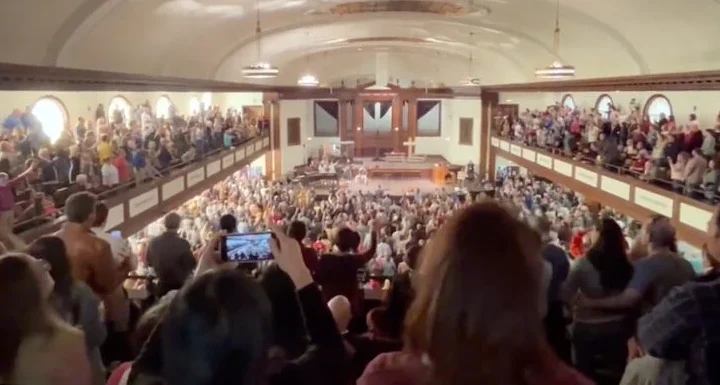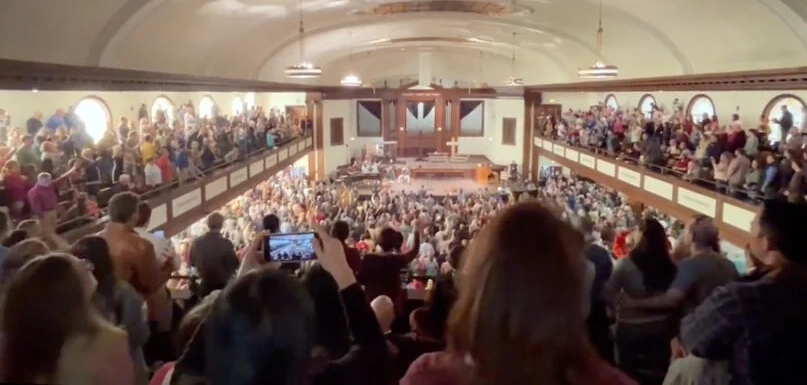Surprise! It’s a revival!
So said Thomas H. McCall, a theology professor at Asbury Theological Seminary, located adjacent to the ongoing spiritual event at Asbury University in Wilmore, Ky. “Sometimes God does what Johnathan Edwards called ‘surprising work’ and what John Wesley referred to as ‘extraordinary’ ministry,” he recalled.
Patricia Engler of Answers in Genesis reported, “The university’s director of strategic communications … told me the phenomenon has come as a surprise to everyone — including staff.”
But is the protracted season of worship that many are calling “The Asbury Revival” really a surprising movement of the Spirit blowing like a mighty wind? Or was it marketed and manufactured?
Christians across the theological spectrum have reached different answers to these questions. Whether a person is a progressive or a conservative evangelical — or somewhere in between — seems to have little effect on determining opinions about what is happening. Some are skeptical based on differing theology or even triggered from past spiritual abuse, while others are more hopeful or in awe of seeing a long-held dream fulfilled before their eyes.
Despite the differences, many people across the theological spectrum seem to have come to a consensus — only time will tell if what is happening at Asbury University can be considered a “true revival”
Despite the differences, many people across the theological spectrum seem to have come to a consensus — only time will tell if what is happening at Asbury University can be considered a “true revival.”
Those who support calling the event a revival have hailed it as a spontaneous movement of God for repentance toward justice, with no political- or personality-driven agenda. But when we move from speculation about the guitar-strumming students on stage to discussing the facts about who is standing in plain sight right around the corner, serious questions arise.
Francis Chan’s promotional video
One week before the big revival surprise of Feb. 8, a coalition that backs the Collegiate Day of Prayer released a promotional video Feb. 1.
The video starts with a narrator saying, “Fifty years ago, something extraordinary happened on one college campus.”
Then a witness from the time adds: “I thought I had seen everything. But today, I saw something that I have never seen before.”
A news anchor then comments: “It started at 10:00 yesterday morning. It didn’t end at 11:00 yesterday morning. It didn’t end at 11:00 last night. In fact, as Jim and I took the air, it was still going on.”
Then others add: “It all started when one student gave his testimony. That was followed by another. And the testimonies have been going ever since. … And as it spread, people began coming in from all around.”
Sound familiar?
Then Francis Chan, an evangelical preaching megastar, comes onto the video saying: “God, would you show your mercy on him, on her just the way you did with me? Because this is their only hope. We need him to change their hearts so that they can change the direction of our nation. We’re asking you, please, join us, join us for this day of prayer, join us in praying for these young people, believe that God can usher in something new through the power of our prayers.”
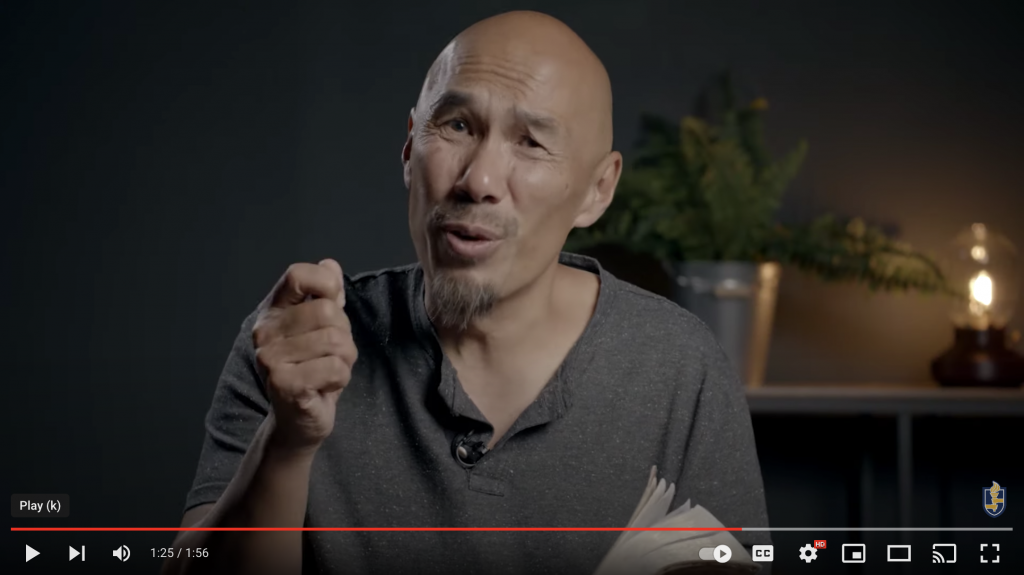
Francis Chan in promotional video.
And how does the video end?
With a call to action: “Join us on Feb. 23rd, live from Asbury University. Lord, do it again.”
When God came
Every February, faculty and students at Asbury University have one thing on their minds — revival. At their special two-hour chapel in Hughes Auditorium Feb. 3, 2020, they showed a documentary called “When God Comes: Celebrating the 50th Anniversary” of the 1970 Asbury Revival.
During the documentary, former President David Gyertson says: “Have you ever asked yourself, ‘What happens when God really comes on the scene?’ I’m standing here in Hughes Auditorium, where in February of 1970, God came.”
“When God Came” describes how they believe that happened. “God began to convict young people of their sin. They confessed that sin and received the cleansing power of God. But along with that, there came the filling of the Holy Spirit to do the things that God has asked us to do — to love him supremely and to go into all the world and preach the gospel.” From there, the documentary says the revival “began to fan out across the country.”
Collegiate Day of Prayer
According to the promotional video released the week before the current revival began, the Feb. 23 meeting with Francis Chan is part of a broader strategy for influencing colleges across the United States.
The Collegiate Day of Prayer is led by a group of conservative evangelicals from the Luke 18 Project, Awaken the Dawn, the Passion Conferences, Campus Crusade for Christ, InterVarsity, America Prays and others.
Like Asbury University, the Collegiate Day of Prayer celebrates revivals of the past while connecting conservative evangelical assumptions about morality to the direction of the nation. “As the students go, so goes the nation,” they proclaim with the goal of “transforming the moral climate of America’s universities.”
Part of their strategy is the “40-Day Jesus Fast.” Its promotional video features Lou Engle, an apostle with the New Apostolic Reformation that helped start The Call DC, POTUS Shield for President Trump, and yelled to 400,000 college students about throwing a Nazarite lunch box at a giant “Jezebel Spirit.”
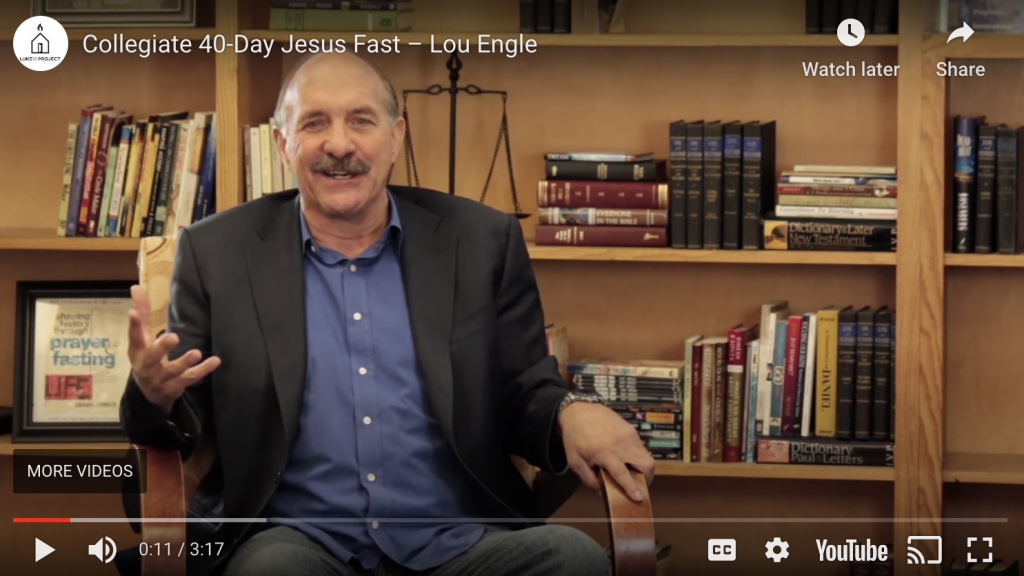
In addition to teaming up with Engle, the Collegiate Day of Prayer quotes an 18th century slaveholder, saying, “As Jonathan Edwards, father of the Great Awakening, observed, ‘It all began with the young people.’” The plan is to “win the spiritual battles across our nation” by hosting similar events at other colleges. An “Adopt a Campus” map shows 4,195 colleges adopted.
But Chan won’t be the only evangelical celebrity in attendance. According to the promo video description, Baptist pastor Rick Warren and worship leaders from the charismatic revivalist church International House of Prayer also will be involved. These events spreading across the nation are preplanned by evangelical marketing experts.
The marks of true revival
With Asbury University teaming up with and hosting these celebrities on Feb. 23 to promote revival, an obvious question is: What does Asbury University think revival is?
In their chapel service for “When God Comes,” Chris Bounds, a professor at Wesley Seminary, referred to one of the Asbury Revival preachers of the past named Leonard Ravenhill. Bounds joked: “Some of us at the time called him Leonard Raving Mad, because he stood in this pulpit and basically scared the hell out of me. And I did not swear when I said that. As I realized, that’s what he is intending to do — scare the hell out of us.
“He told me I was a sinner, a hypocrite, and if I didn’t change, I’d go to hell. Prophets are never very popular people. But, oh, the freedom that comes — I don’t know how to say this strongly enough — the freedom that comes when you get to a place where you realize, ‘I’m just a no-good, low-down, dirty rotten bum. And everybody else is too. And they know I am.’ Isn’t it a glorious reality to live in?”
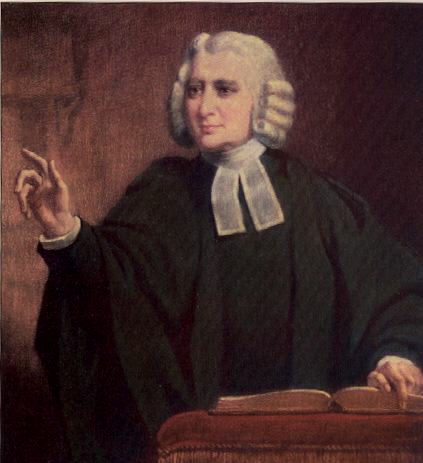
Charles Wesley preaching
Then he celebrated a Charles Wesley sermon in which Wesley told the congregation, “You’re an abomination to God.”
In 2020, Bounds told Asbury students the marks of true revival are the people of God catching a glimpse of the valley of dry bones, the word of God coming through preaching or testimony, people falling to their knees in prayer and repentance, and the Spirit of God blowing like the wind in a unique and surprising way.
“I’m intrigued at what I understand about the 1970 revival is that the word of God came in this room, not primarily through preaching, as important as that is. The word came through testimony,” he said. “We celebrate something that happened 50 years ago, not because we’re interested in nostalgia or sentimentality. We celebrate the past to remind us that God wants to do it again.”
Quoting evangelist G. Campbell Morgan, he said: “‘We can’t create revival. But we can set our sails for the wind of the Spirit when it begins to blow.’”
Then referring to a conversation between Lucy and Aslan in The Chronicles of Narnia, Bounds quoted Lucy saying, “You came, but you didn’t come the same way you came last time.” Then he said Aslan replies, “Things never happen the same way twice.”
Some common-sense questions
People who have attended the current Asbury event have said it feels different from other revivals because it is spontaneous, avoids personalities, is nonpartisan, is devoid of emotional manipulation, preaches a noncondemning gospel and features worship that is simple, lo-fi and acoustic guitar-led.
How can school officials claim the events have happened spontaneously and surprisingly when they have spent years celebrating past revivals and teaching students exactly how they happened, and then participated in a promotional video the week prior calling people to come to their campus for a revival-inspired day of prayer? If being spontaneous is so valued, then why does the Asbury Collegian defend intentionally scheduled revivals and report student polling data about whether planning revivals is right?
How can people claim the events are not about personalities when the promo video features Francis Chan, and its description mentions Rick Warren and other celebrities coming to the campus Feb. 23 for an Asbury revival-inspired day of prayer?
McCall wrote in Christianity Today: “Some are calling this a revival, and I know that in recent years that term has become associated with political activism and Christian nationalism. But let me be clear: No one at Asbury has that agenda.”
Perhaps the acoustic guitar-playing Asbury student leading a worship song on stage may not have that agenda. And perhaps they’ve turned Christian nationalists away from the microphone.
How can we be sure there is no partisan Christian nationalist political agenda in the broader picture when Asbury is teaming up with an organization led in part by members of the New Apostolic Reformation who fueled the Jan. 6 insurrection?
But how can we be sure there is no partisan Christian nationalist political agenda in the broader picture when Asbury is teaming up with an organization led in part by members of the New Apostolic Reformation who fueled the Jan. 6 insurrection? What does Chan mean in the promo video when he says he wants God to “change their hearts so that they can change the direction of our nation”? And what is the Collegiate Day of Prayer’s vision for changing the nation?
The Asbury auditorium may not be filled with fog machines, lights and loud music. But the faculty spent decades priming and preparing the student body for this very thing. And with so many evangelicals longing for revival, how can we not wonder if the absence of technology is part of the emotional manipulation of evangelicals’ deepest longings?
If the gospel at Asbury is so positive and freeing, then why would they have someone preaching at their 50th anniversary revival celebration in 2020, talking about hell and calling people “low-down, dirty, rotten bums”? And why would the promo video talk about their theology being people’s “only hope”?
I might be willing to assume the 20-year-old acoustic guitar-wielding worship leader may not have these power-driven, Christian supremacist motivations in mind. Any questions I raise here are not meant to attack these worship leaders and the very real, deeply human connections they may be making with their friends.
But Asbury has connected itself leading up to, during and after this event with people who are responsible for attempting an insurrection of the United States government. So, questions must be asked about whether insurrectionists of the Charismatic Revival Fury and others are harnessing the power of Asbury Revival by slipping past the stage and into the boardrooms.
Revolt, revolution and revival
In “Why We Can’t Wait”, Martin Luther King Jr. said: “A social movement that only moves people is merely a revolt. A movement that changes both people and institutions is a revolution.” If what’s happening at Asbury turns out to be a true revival, one might consider King’s distinction between a revolt and a revolution. A revival that makes things new must be a movement that changes people and institutions, rather than merely moving them emotionally.
One of the most obvious concerns when seeing the images and videos of what’s going on at Asbury is the sea of white people present.
According to College Factual, 81% of Asbury’s undergraduate student body is white, while just 4% is Black.
Additionally, College Factual says Asbury has just one Black graduate student.
Even if those numbers are off to some degree, everyone who sees the videos can see it is overwhelmingly a white event.
The work of revival
The reason it is important to recognize how white the event has been is that Asbury claims to have had eight major revivals since 1905. With everyone saying “time will tell” if the 2023 revival is a genuine work of repentance, it makes sense to consider what’s happened as a result of the previous eight.
If your institution has led eight movements of God that spread across the world, then how is your student body still overwhelmingly white? Is the ninth revival really going to change that? What is being revived?
Howard Thurman’s piece called “The Work of Christmas” would be helpful for us to reflect on, while substituting the word “Christmas” with the word “revival.”
When the song of angels is stilled,
When the star in the sky is gone,
When the kings and princes are home,
When the Shepherds are back with their flock,\
The work of Christmas begins:
To find the lost,
To heal the broken,
To feed the hungry,
To release the prisoner,
To rebuild the nations,
To bring peace among brothers,
To make music in the heart.
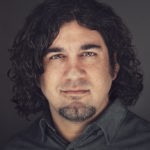
Rick Pidcock
Rick Pidcock is a 2004 graduate of Bob Jones University, with a Bachelor of Arts degree in Bible. He’s a freelance writer based in South Carolina and a former Clemons Fellow with BNG. He recently completed a Master of Arts degree in worship from Northern Seminary. He is a stay-at-home father of five children and produces music under the artist name Provoke Wonder. Follow his blog at www.rickpidcock.com.
Related articles:
About the Asbury ‘revival’: Time will tell
What I witnessed this week at the Asbury revival
Bush calls for revival to help all Christians welcome immigrants
Spiritual revival is key to ending homelessness, workers say

